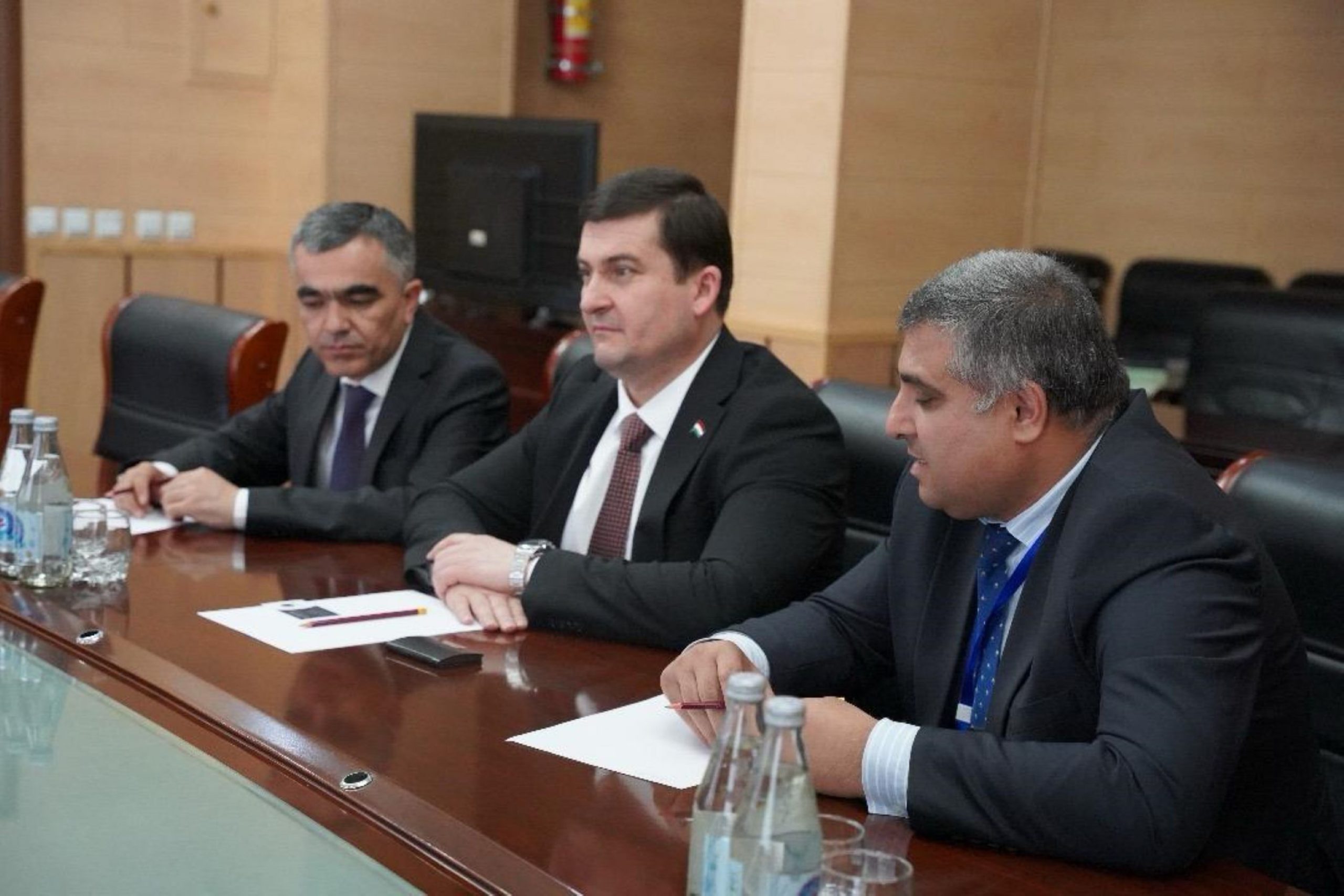TRENDS Research & Advisory held discussions with the National Academy of Sciences of Tajikistan to explore opportunities for collaboration in research, science, and knowledge exchange in areas of mutual interest, particularly humanities, the development of fundamental and applied research, and joint efforts to launch specialized training programs.

The meeting took place on the sidelines of TRENDS’ participation in the International Conference on Glaciers’ Preservation 2025, held in Tajikistan. Representing TRENDS were Abdulaziz Al-Shehhi, Senior Researcher and Deputy Head of the Research Sector, and Hamad Al-Hosani, Senior Researcher and Head of the Political Islam Studies Section. They met with the President of the Academy and a number of academic leaders and experts at the Academy’s headquarters in Dushanbe, Tajikistan.
The discussions covered ways to activate cooperation in scientific research, academic publishing, exchange of expertise, and joint training, in addition to developing both foundational and applied research projects. The two sides agreed to sign a memorandum of understanding to advance the implementation of several joint research initiatives.

Joint Research and Studies
Qobiljon Khushvakhtzoda, President of the National Academy of Sciences of Tajikistan, expressed his institution’s openness to constructive collaboration with TRENDS Research & Advisory, which he described as one of the most dynamic and trusted think tanks operating at both regional and international levels.
He emphasized the Academy’s interest in working with TRENDS on joint research and academic studies that analyze and interpret global events and challenges, including transnational organized crime, ideological extremism, economics, sustainable development, artificial intelligence, and advanced technologies. He also stressed the importance of scientific research in supporting digital transformation and fostering innovation.
Khushvakhtzoda praised TRENDS’ efforts in advancing research and disseminating knowledge, noting the vast potential for collaboration, particularly in the fields of humanities and social sciences.

Strengthening Strategic Partnerships
Abdulaziz Al-Shehhi, Senior Researcher and Deputy Head of the Research Sector at TRENDS, affirmed that the center is committed to expanding and diversifying its global strategic partnerships with leading research and academic institutions, thereby supporting knowledge exchange and the sharing of perspectives and expertise on pressing global issues.
He welcomed the opportunity to collaborate with the National Academy of Sciences of Tajikistan, one of Central Asia’s most prestigious scientific institutions, comprising 20 research institutes and boasting a history of over 75 years of academic achievement. He noted that this partnership would foster opportunities for joint research, the organization of academic and intellectual conferences, and the exchange of expertise to advance knowledge.

Exchange of Expertise and Experience
Hamad Al-Hosani, Senior Researcher and Head of Political Islam Studies Section at TRENDS, highlighted that the meeting focused on the importance of exchanging expertise and experiences between researchers and experts from both sides. He proposed launching a research fellowship program that would enable TRENDS to benefit from the Academy’s academic expertise in its ongoing projects, in addition to establishing joint training programs aimed at enhancing the skills and capabilities of young researchers.
He added that both parties agreed to sign a Memorandum of Understanding to strengthen cooperation in research, training, and advisory services. The agreement would serve as a foundation for developing a sustainable partnership strategy that enhances research output and fosters direct engagement in analyzing and addressing regional and international developments, especially issues related to intellectual security and sustainable development.



